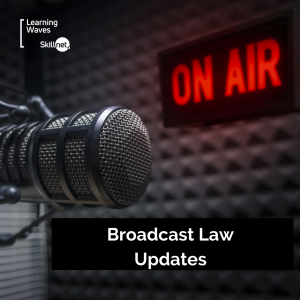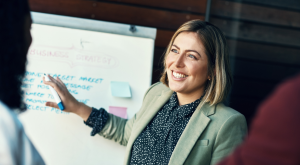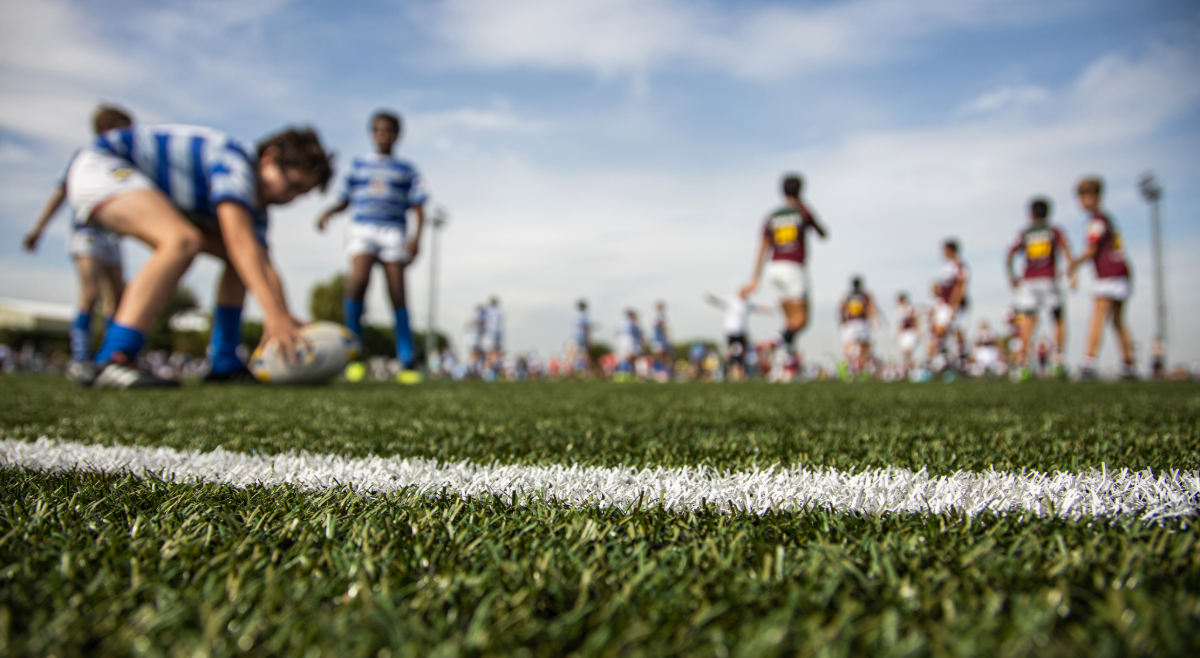The Future of Sport on Radio - Know your audience is key message from Learning Waves Skillnet workshop.
On Monday 24th April 2017 Learning Waves Skillnet held a highly interactive and engaging workshop on the 'Future of Sport on Radio', a workshop that encompassed all things from sports rights, to interviewing your guests, to social and sport and to podcasting with a panel of expert speakers. The panel included Mike Bovill, Managing Editor for talkSPORT 2, Joe Molloy, Off the Ball, Newstalk, Joanne Cantwell, Sports Presenter, RTE, Paul Kimmage, Sports Journalist, Joanne Sweeney Burke, Digital Training Institute and Andrew Mangan, Castaway Media.

The workshop opened with a discussion between Red FM's Lisa Lawlor and Mike Bovill from talkSport 2 on the 'Future of Sport on Radio'.
According to Mike Bovill, talkSPORT 2 been a success editorially and commercially because of the rich heritage of speech radio in UK & Ireland. He said that picking up rights which are available has been key and that football is big for UK audience. However, online has been a challenge for everyone for them and things are reaching a tipping point in relation to online but Bovill believes we are not there yet. Everyone has a smartphone but not everyone is listening to the radio on it. Interestingly at the moment he said, more people are listening to radio in the UK than ever before. He believes the appetite for consuming live sport is still there but points out that 'it has to be the right 'live' sport for your audience'.
A question from the audience asked him about producing high quality content on limited resources, in response to this he said 'it’s challenging but possible through innovation and a lot can be achieved with few resources'.
In relation to their online presence, Bovill pointed out that they have a very small digital team but have the biggest social brand in the UK in relation to commercial radio. For Bovill, it is about doing things cleverly on social media and about using these platforms to grow the business. It is hugely important to have an online presence, but this is an ongoing challenge for talkSPORT 2, the trick he believes is 'to get balance right so social media feeds back into radio'.
Following from this, Newstalk's Sports Editor, Adrian Barry, interviewed the panel of Joe Molloy, Joanne Cantwell and Paul Kimmage to get some tips from them on how to get the best out of your interviewees.
For Joanne Cantwell, when interviewing, she wants to find out what drives the sportsperson, what makes them as successful as they are, sports people are the same as us but have something special. According to Cantwell, most professional sportspeople can be media trained and difficult to get an honest, genuine, interesting interview from. Joanne says that there are always questions/ points she wants to get to into an interview but sometimes the most interesting angle can be responding to something your interviewee has said r ather than just sticking to prepared questions. It’s therefore important to ‘listen and respond’ says Cantwell.
ather than just sticking to prepared questions. It’s therefore important to ‘listen and respond’ says Cantwell.
For Joe Molloy, in order to get the best out of your interviewees, sometimes humour can knock people off media speak and from this your interview can take a completely different but much more interesting road. In preparing for the interview, Molloy advises : not to write out full questions, make a map/ list of topics or things you want to discuss, highlight a key word or quote as guide, think about flow of the interview and the order, ask short, simple questions, keep it simple and make sure the listener hears the guest rather than you. Also, If you don’t have long with an interviewee, try and cover something in depth rather than attempting to hit 5/6 points and only have time for sound bites.
For Paul Kimmage, the big question when he asks himself when doing an interview is ‘will my listener be interested in this?’. According to Kimmage, the listener is the most important person, not the interviewer. Always try to find something interesting to go on and build relationships with local players/ managers. For both Kimmage and Molloy it is hugely important to ‘be fair to all interviewees and you must show empathy towards the person you are interviewing’. You must also be self-critical and know that everything you do can be improved.
The discussion concluded with the panel offering advice to the audience on ‘asking difficult questions or approaching subjects which interviewee might not want to answer’. The advice from the panel was to ‘consider the information you have, decide if it’s appropriate, use judgement, it’s your job after all to ask those questions and always remember that you have a ‘duty to your listener’.
Joanne Sweeney Burke and Andrew Mangan then spoke to the audience about Sport and Social on Radio. In opening her presentation, Joanne told the audience to 'consider social a sport, it demands team effort, requires agility, competitiveness, playing to the fans and knowing when to take your shot'. Joanne encouraged the audience to see social as an opportunity and not as a challenge, 'stories are the fuel of social media and radio stations have lots of stories to tell' and stations can use social to build their brands and to turn fans into subscribers'. According to Joanne, Facebook is still king in Ireland with 82% of Irish people owning a Facebook account. It is important therefore for stations to have a budget for Facebook in order to build their brand. Joanne left the audience with some key tips in relation to sport and social for radio : 
- Build a strategy in your station for social and live video - embed video in news/sports articles shared on Facebook, break sports stories live on video on your social platforms, tease on-air content and make interviews more multi-platform to reach a wider audience
- Invest in promoting content on Facebook, social is not free, you have to invest to get results, leave your content for 24 hours to allow for organic reach and then invest in order to promote & boost the post
- Make everything look perfect for each platform, don't assume the same content will work across all platforms
- Personalise your content to reach your audience like you do with your on-air content
- Always remember the 3 C's of Storytelling - consistency, curation and conversation
Andrew Mangan from Castaway Media told the audience about his story and how he got into Podcasting and he believes that more could be done by stations to launch podcasts and to use longer form interviews as podcast material.
Thanks to Adrian Barry, Sports Editor from Newstalk who helped in organising the event and to all who attended. Remember you can find us on facebook.com/learningwaves and you can also follow us on Twitter @LearningWaves




